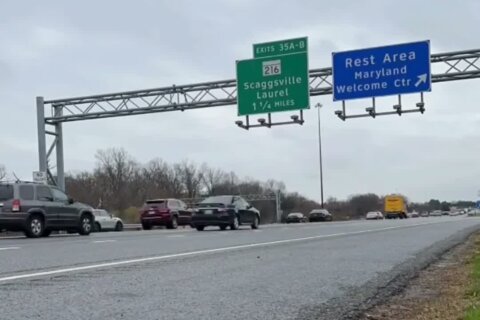While it’s a myth that the suicide rate goes up during the holiday season, suicide among young people is up over the past decade or so, and the Thanksgiving holiday is the first time many parents have seen their kids since dropping them off at college months ago.
According to a local psychotherapist, that makes it a good time for parents to watch for the warning signs for suicide risk.
William McVey, a psychotherapist at the Capital Center for Psychotherapy and Wellness, in D.C., said it’s important to be aware of how your child is talking and acting as they return for the holiday.
It’s important to see whether “they are expressing feelings of hopelessness, if they are talking about everything just being too much of a burden. Many times they’ll express feeling trapped.”
Behavioral red flags can include sleeping schedules, McVey said — either sleeping all the time, or staying up around the clock. And if you see your child giving things away, as if they’re bequeathing them to people, pay attention: “If someone starts giving away items, this is something to focus in on, too.”
You should also look to see whether your child has lost interest in things they used to enjoy, or showing increased signs of irritability and anger.
“Those are things that can also demonstrate that someone is feeling vulnerable … and they need some assistance in that.”
Conversely, what looks like a sharp improvement in mood, to an emotional state that’s even more jolly than usual, can be a sign that they’ve felt they’ve regained some control in their life by deciding to end it. McVey called that “the most dangerous time.”
That can encompass a wide range of words and actions, so it’s understandable that a parent doesn’t want to overreact. McVey said starting a conversation is the first step.
“Going to them and saying, ‘I see your pain; I see some of your hurt here. Please go seek professional assistance.’”
It’s also important to know that there is no such thing as a type of person more or less likely to kill themselves, McVey said.
“Everyone is at risk of experiencing trauma. … Everyone’s trauma is different, and you never know what’s going to impact one person in a very specific way that’s going to cause them to lose sight of hope and can really cause them to plummet into what we would call a shame spiral. … This can happen at any time, and it’s rather unpredictable.”
If you’re seriously concerned for someone’s well-being, and they refuse to get help, McVey suggests reaching out to the D.C. Access Helpline. They’ll speak to you about what is going on, and get you connected to services. They also have a Mobile Crisis Unit that can come out to a person who may need immediate assistance.
You can call them at 888-7-WE-HELP (888-793-4357).
And if you’re worried about yourself, he added, you can call the National Suicide Prevention Hotline at 800-273-TALK.








